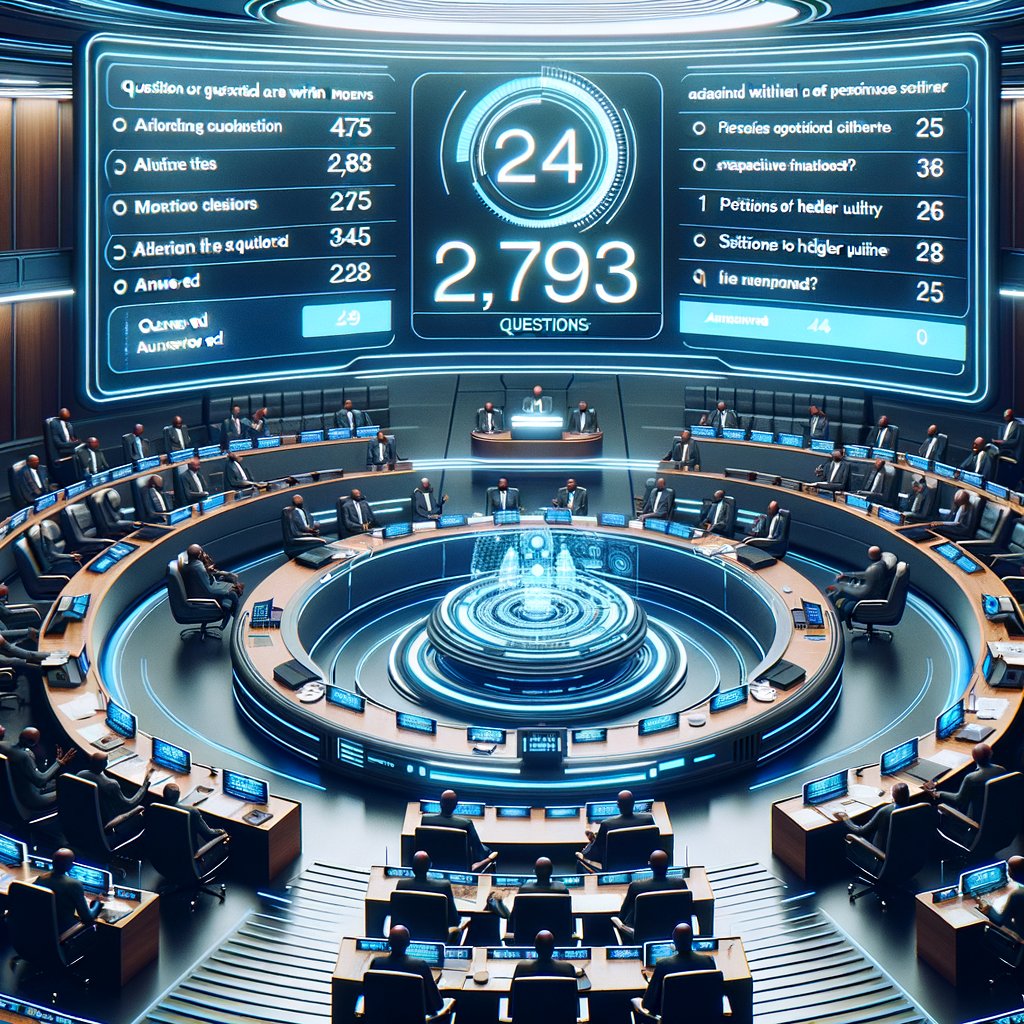Image created by AI
Parliamentary Accountability: The Importance of Timely Responses from South Africa’s Ministers
In a robust democratic system, the ability of elected officials to scrutinize the executive is crucial for maintaining governmental transparency and accountability. In South Africa, this mechanism is facilitated through parliamentary questions — a tool that Members of Parliament (MPs) use to hold ministers accountable. Recent discussions in Parliament have spotlighted the constitutional requirement for ministers to respond to these inquiries within a set timeframe.
Parliamentary spokesperson, Moloto Mothapo, highlighted the sheer volume of questions directed towards members of the Cabinet, with a total of 2,793 questions posed this year alone, including 2,475 written and 318 oral questions. Among these, questions directed at high-profile leaders such as the President and Deputy President numbered 24 in total.
Despite the large number of questions, Mothapo reassured that the process is under control, with 1,801 written and 285 oral questions already answered. He noted that the remaining 259 questions are still within the permissible response period as stipulated by parliamentary rules. This framework seeks to ensure that ministers provide timely and comprehensive responses, reflecting their commitment to governmental accountability.
These responses are crucial as they provide MPs and the public with insights into governmental operations and decision-making processes. They also play a critical role in informing legislative decisions and public debates. The Office of the Deputy President, currently helmed by Paul Mashatile in his role as the leader of government business, has reiterated the importance of adhering to the official deadline for submitting written responses, set for January 9.
This push for accountability reflects a larger commitment to uphold the fundamental values of democracy. Timely responses not only help in maintaining a transparent governance framework but also in reinforcing the public’s trust in their elected representatives. The importance placed on this process by Parliamentary officials is a reassuring sign of South Africa’s dedication to robust democratic governance.
As MPs continue to pose questions critical to the nation's welfare and governance, the emphasis on strict adherence to prescribed timelines by ministers signifies a crucial aspect of maintaining an effective and accountable government. It is essential for South Africa’s democracy that this dialogue between Parliament and the government remains both vibrant and productive.










